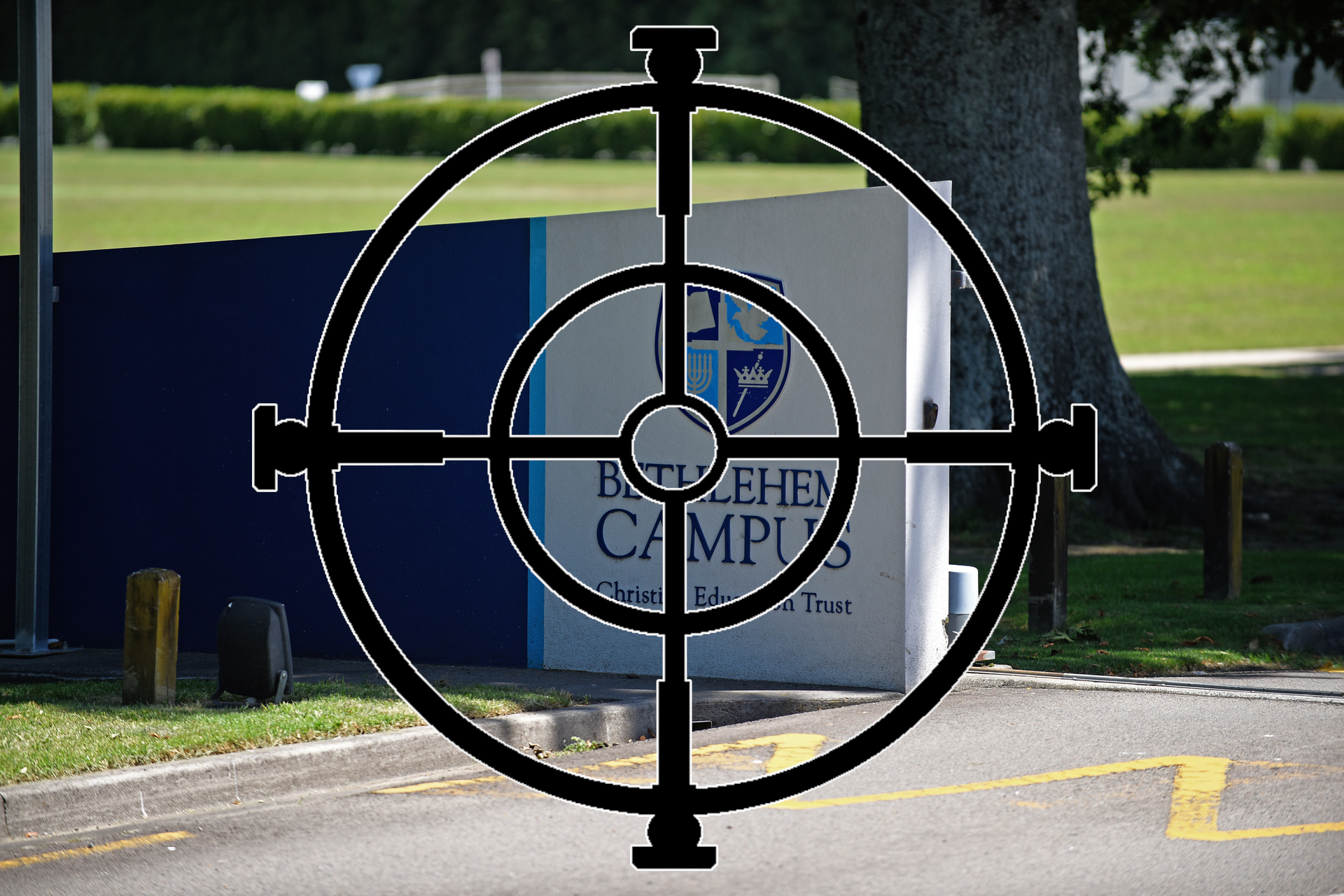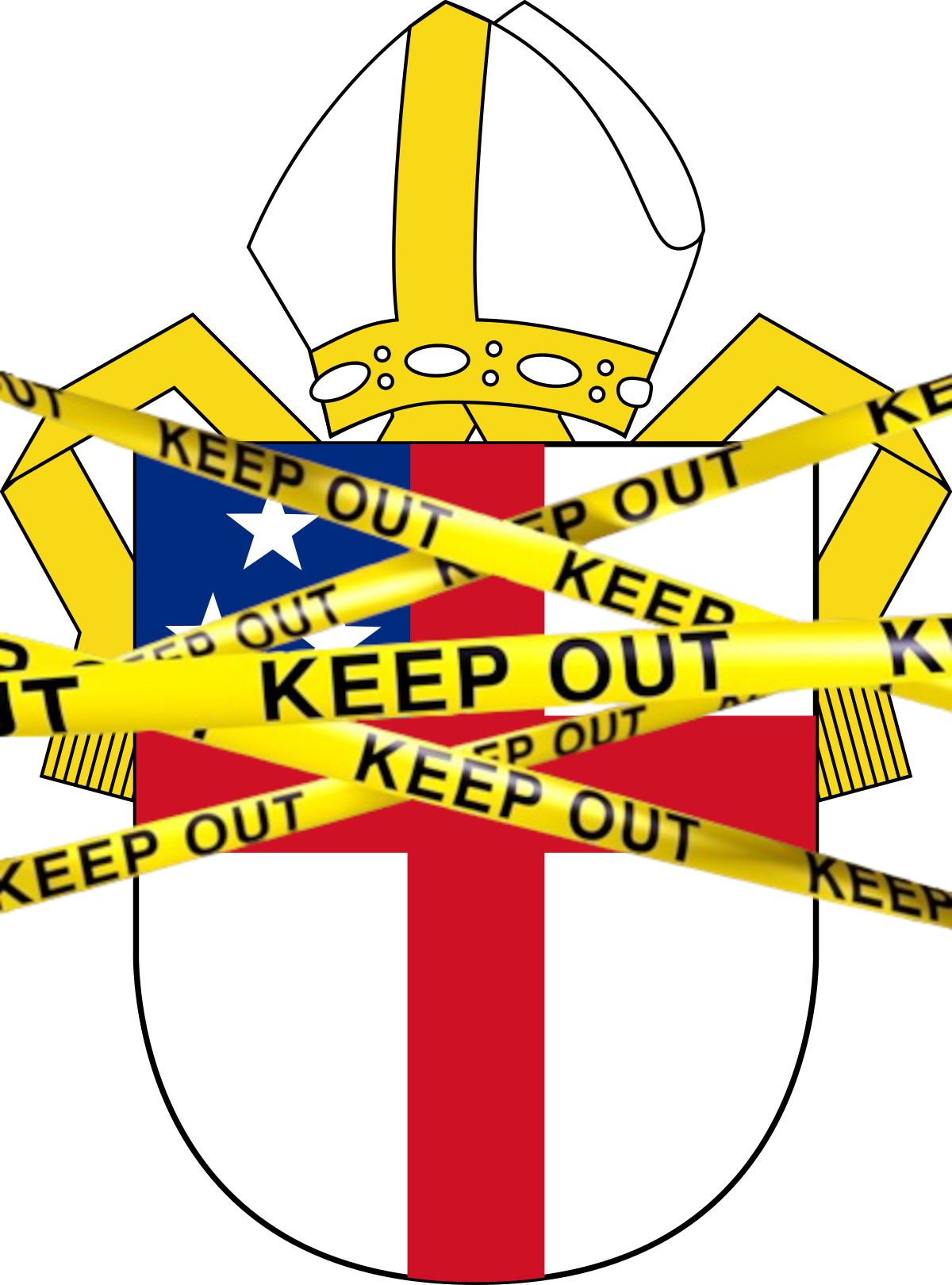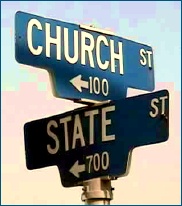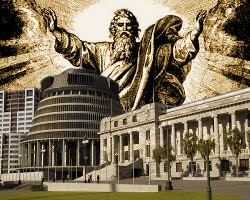I recently sat down with David Riddell, a Christian counsellor caused a stir a little while ago amid accusations that he practices so-called “gay conversion therapy.”
Tag: religion in the public square Page 1 of 2

The Ministry of Education is trying to force Bethlehem College, a Christian school, to change its statement of belief – a statement that reflects Christian beliefs. Specifically, they are trying to compel the school to remove their statement that they believe marriage is the union of a man and a woman, on the grounds that this discriminates against those who do not share this view or who are in a relationship outside of this definition. On the face of it, this is a shocking thing for a Government agency to do and an obvious affront to the right of the school to freely state its belief on a matter that is hardly a surprise. This is, after all, the Christian view of marriage. But here’s the thing: The grounds on which the Ministry is trying to make the school change its statement of belief on the one hand, and the reason the ministry is being urged to do so on the other, are quite different animals.
It’s a situation, I think, where a government agency is fronting what seem like reasonable grounds for their demand, while serving a more sinister purpose. That’s how a slightly cynical person might read this situation (and cynicism is perhaps wise in this situation).

I love our local Anglican church. I won’t name the parish, for reasons that will become apparent soon (although it’s not their fault in any way). We won’t be there for Christmas. I’d really like to be, but I’ve chosen not to be.
I’m vaccinated against COVID-19, and I think you should be, too. I’ll delete any comments that try to argue with this stance. Don’t argue with me. Argue with your medical doctor, if you really must. I only point out that I am vaccinated and I believe in the value of being vaccinated to make it clear that I did not write this letter for my own sake. The bishops of the Anglican Church in Aotearoa New Zealand and Polynesia recently decided that no person without a vaccine certificate, proving that they’ve had two vaccine shots, is permitted to attend public services in any Diocese in New Zealand. Whatever you might think of people who cannot in good conscience be vaccinated (for reasons that I do not accept), do you think they should be treated as part of the Church? When the Church gathers to worship, hear the word preached, and share in the communal act of receiving the Lord’s Supper, should they be excluded?
If you answered “yes,” then I am very sorry you are in that place. It seems obvious to any reflective person that we are not facing a dichotomy of “exclude unvaccinated people from Church” or “do not care about physically vulnerable people who might get sick.” Nobody (or as I said, no reflective person) can take such a simplistic view. An obvious option is to require a recent negative COVID-19 test if a person is not vaccinated. This is an even more feasible option with the availability of rapid antigen testing. The point is that reaching for the simplest, bluntest, most harmful tool that just happens to align nicely with what the secular authorities approve of without so much as raising a single public concern is a dreadful turn of events.
Although the identity of the bishops in this diocese is not secret (yes, there are two bishops), I have removed their names from this letter. They acted in accordance with all the other bishops, I do not know what they believe about this situation, and I don’t want this post to have the appearance of hostility towards them. This blog post is just to express my lament at this action, and to let you know how I expressed that lament in a letter I recently sent to the bishops. That letter is as follows:

Should religious people keep their divisive beliefs away from policies about marriage?
The green activists got up in arms about the introduction of genetically modified plants into the New Zealand market. But there is, as far as I can see, no widely lampooned caricature of people with environmental concerns as being socially divisive – in spite of those among their number who vandalised the farms of people suspected by them of having genetically modified crops. Large numbers of parents (the clear majority of those who voiced their opinion, in fact) raised their voices in protest when the government threatened to criminalise all use of any force in disciplining a child, while offering the benevolent promise that not all such criminals would be prosecuted (guess which way I lean on that). Parents were ignored and the law was changed, but more importantly here, nobody now thinks of parents as a uniquely divisive group within society. Many other people with common concerns or causes have likewise raised their voice in unison over other issues that concern them, but the fact that groups who do this in general do not get singled out as divisive or polarising is demonstrated by the way that just which groups spoke out over what issue is the kind of thing that tends to fade into obscurity in a relatively short time. But religion? Oh, that is different.

Is there a neutral way of deciding whether or not to treat churches as charitable organisations and therefore tax exempt?
An interesting discussion broke out over at M and M recently about a guest post by bethyada on whether or not the tax exempt status of churches directly costs taxpayers. I’ll let his piece speak for itself and won’t really get into the actual subject of it, because in the comments section a different issue came up that I’d like to put out there for your consideration.
One of the correspondents was insistent that the tax exempt status of churches amounted to a “privilege” that nobody else gets, and that no organisation should have tax exempt status by virtue of of being a church – they had to actually be charitable.
As many readers will know, a lot of churches have food banks, they run programmes for children, they might provide counselling, among other things. But are churches already charitable, regardless of what else they do? According to New Zealand law, a charitable purpose (for tax exemption purposes) “includes every charitable purpose, whether it relates to the relief of poverty, the advancement of education or religion, or any other matter beneficial to the community” [Charities Act 2005, Section 5(1)].
 When I was at the University of Canterbury in July I gave two talks. Episode 29 was one of those talks, on abortion. This talk was actually based on the same material that served as the basis for episode 3, so there will be obvious similarities.
When I was at the University of Canterbury in July I gave two talks. Episode 29 was one of those talks, on abortion. This talk was actually based on the same material that served as the basis for episode 3, so there will be obvious similarities.
Think of this as a consolation prize while I (very slowly) finish the next episode in the series In Search of the Soul. Hey, if you want me to get these things done faster, then hire me. 🙂
Glenn Peoples
Podcast: Play in new window | Download
 Part 2 of a 2 part series on Religion in the Public Square.
Part 2 of a 2 part series on Religion in the Public Square.
For those interested, here’s the transcript for this episode, and here‘s the transcript for episode 2. Comments are welcome, and remember, if you’d like to email questions/comments/feedback for me to address in the show, feel free to use the contact button over on the right.
Podcast: Play in new window | Download
 Do our religious beliefs have any place in our political and public life?
Do our religious beliefs have any place in our political and public life?
This is the first of 2 episodes on religion in the public square, a subject that will probably come up from time to time at the podcast.
Podcast: Play in new window | Download

